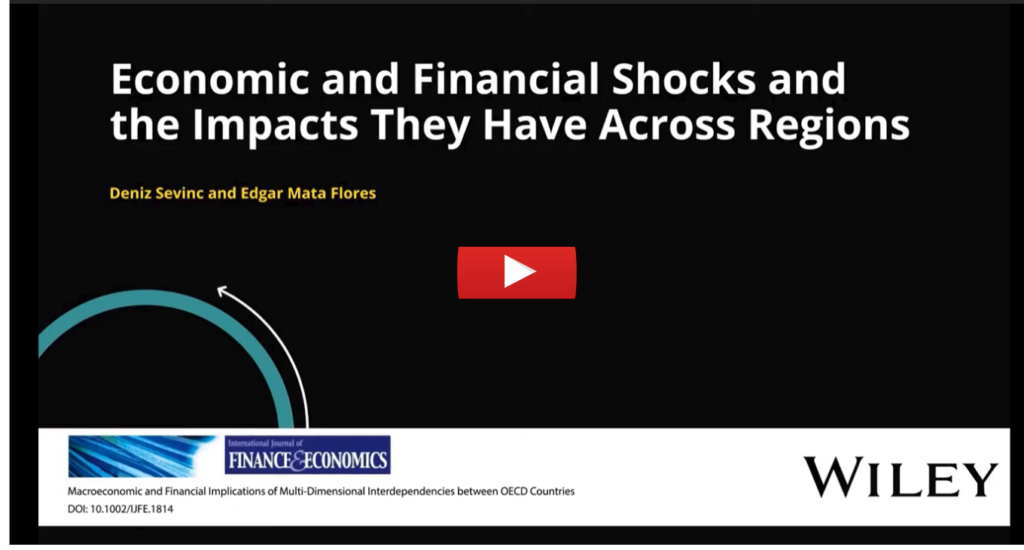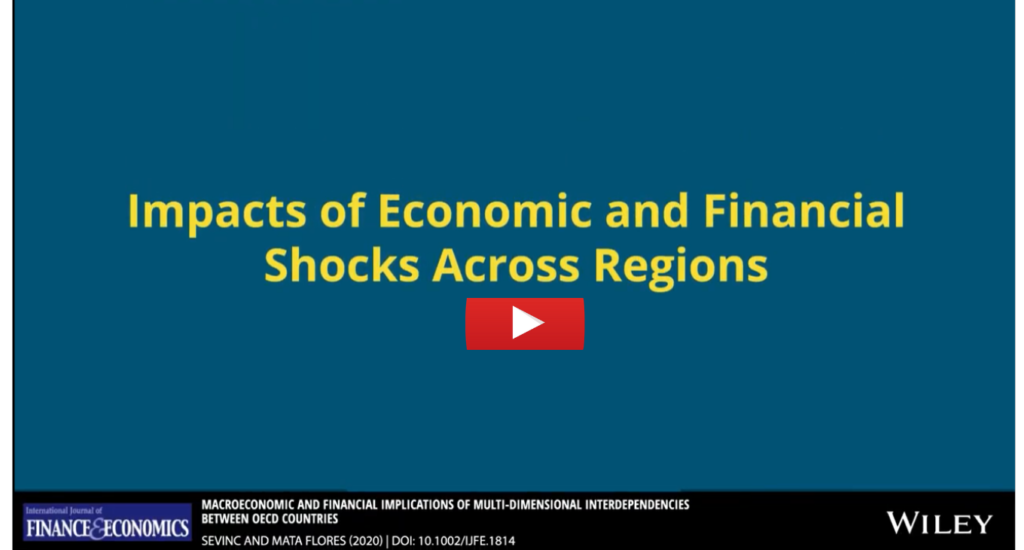
In this blog, Dr Deniz Sevinc and Dr Edgar Mata Flores discuss their new paper looking at economic and financial shocks and the impact they have across regions.
If there is one thing that economic history keeps reminding us about, it is that times of severe turmoil are a recurrent feature in the international economic landscape. With significant certainty, we can expect them to come time and again with varying intensities, duration and geographic extents although, unfortunately, nobody can say when or where. Factors as international conflicts, industrial disruption (as oil crises), deficiencies in risk management (as in the financial crisis), economic policy (as in debt crises) or even others originated in nature (COVID-19) have had important effects on the economic development of regions and on the global economy.
However, when such events happen, the cards are far from being evenly distributed. Certain economic regions are more vulnerable to the impacts of that turbulence and its shock waves which, for some regions, are long-lived.
Our recent article, published in the International Journal of Finance and Economics, helps to understand key features of those regional imbalances measured as the potential size, duration and geographic extent of the impacts of representative scenarios of economic disruption in financial markets, economic performance, oil prices and fiscal balances.
Our paper can be accessed here for free.

Considering current interlinkages between economies in the Organisation for Economic Cooperation and Development (OECD), we analysed the effects of disruptive scenarios originated in specific regions and spread across the rest of the economies in the group. Among key contrasts, we found a significant divide between the effects on north and south countries in the Euro-area, notorious resilience in the Asia-Pacific region and the potential of the North American region (formerly known as NAFTA) to drive generalised (i.e. world-wide) turbulence to which the repercussions across the other OECD sub-regions are also described.
 The Importance of the Paper in a Nutshell
The Importance of the Paper in a Nutshell
Thanks to its approach to the international economy as an integrated system, where networks are formed on the bases of main factors as trade, finance and migration, this research’s findings are important to understand the contrasts between the impacts of common economic and financial disturbances and to provide policy-makers with additional insights from a wider, international perspective for the benefit of national and internationally-coordinated policies.
Understanding these international exposures is of particular importance in times of generalised disturbances when policy-makers need to formulate their responses not only considering the effects on their own economies but also those on their significant international counterparts.
Authors’ take on the paper
Dr Deniz Sevinc
This paper describes both similarities and consequential heterogeneities across five OECD sub-regions in relation to the impacts of financial and macroeconomic disturbances. A distinctive feature of the paper is the use of composite linkages mediating between country-specific models in an international framework. These linkages provide an innovative, wider depiction of the relative roles each economy has towards each other based on key factors of bi-lateral interaction: trade, investments, migration and geographic distances.
Our study, therefore, departs from other GVAR studies which tend to overlook the significance of the proposed components and use only, at best, a subset of them. Distinguishing both homogeneities and heterogeneities across diverse economies in this sense is an important subject mainly for the purposes of designing policies which, as a result, can adopt a systemic perspective.
Not only national policy-makers and researchers are interested in the characteristics of the described sensitivities but also multi-national organisations would benefit from the implications of our results from a wider point of view.
Dr Edgar Mata Flores
This study is meant to provide key insights into the nature of the propagation of disturbances across the international economy. It is, obviously, a summarised analysis of fundamental factors and more detailed studies can follow to extend this research towards multiple areas of interest in the spheres of economics and finance (monetary policies, the banking industry, employment, etc.) and to widen its geographic coverage.
It is undoubtedly a field with great potential, we are happy to contribute to it and hope to inspire related discussions in both academia and policy-making bodies.
This blog was written by Dr Deniz Sevinc, Research Fellow for City-REDI / WM REDI and Dr Edgar Mata Flores, Department of Economics, University of Leicester.
To sign up for our blog mailing list, please click here.
Disclaimer:
The views expressed in this analysis post are those of the authors and not necessarily those of City-REDI / WM REDI, University of Birmingham.
